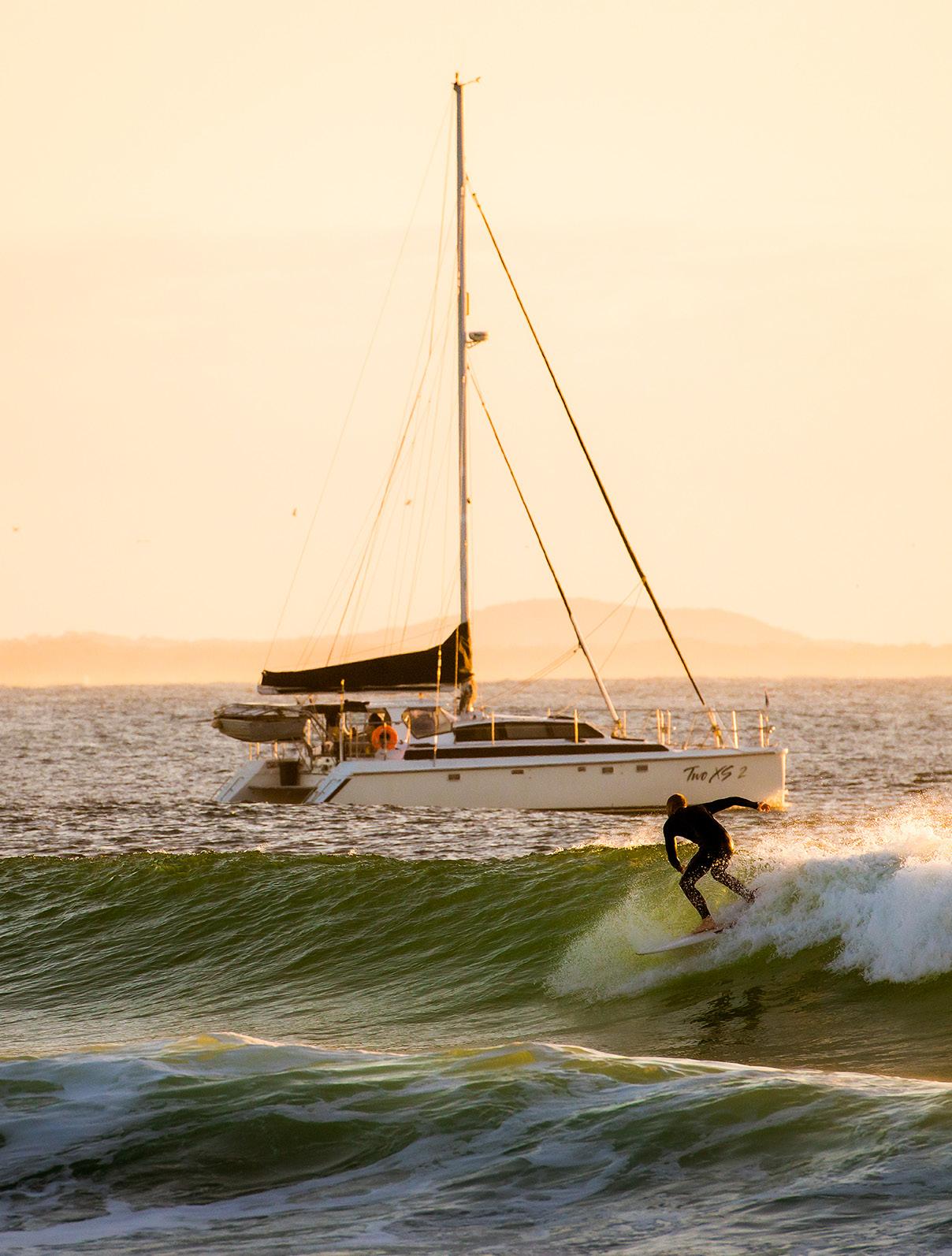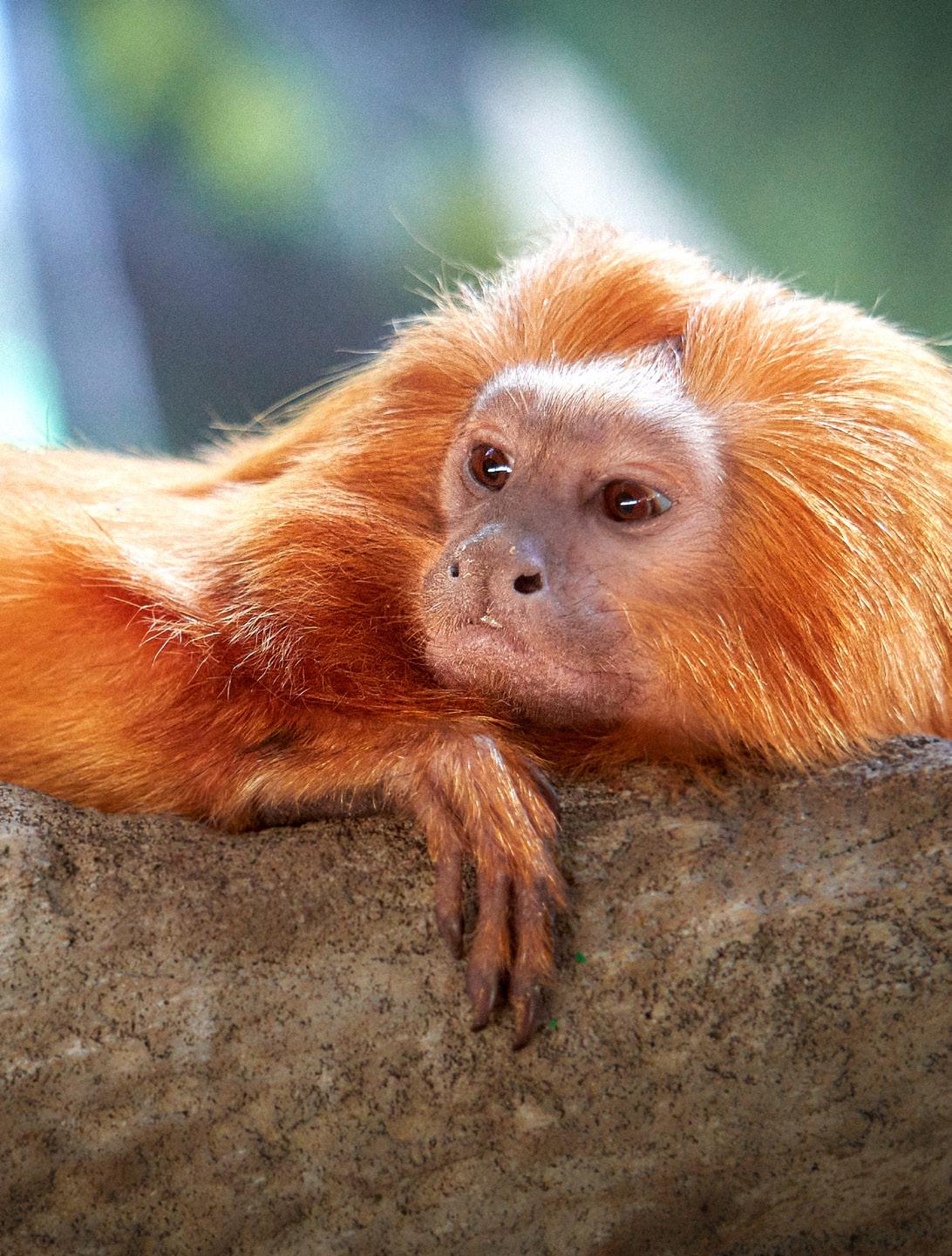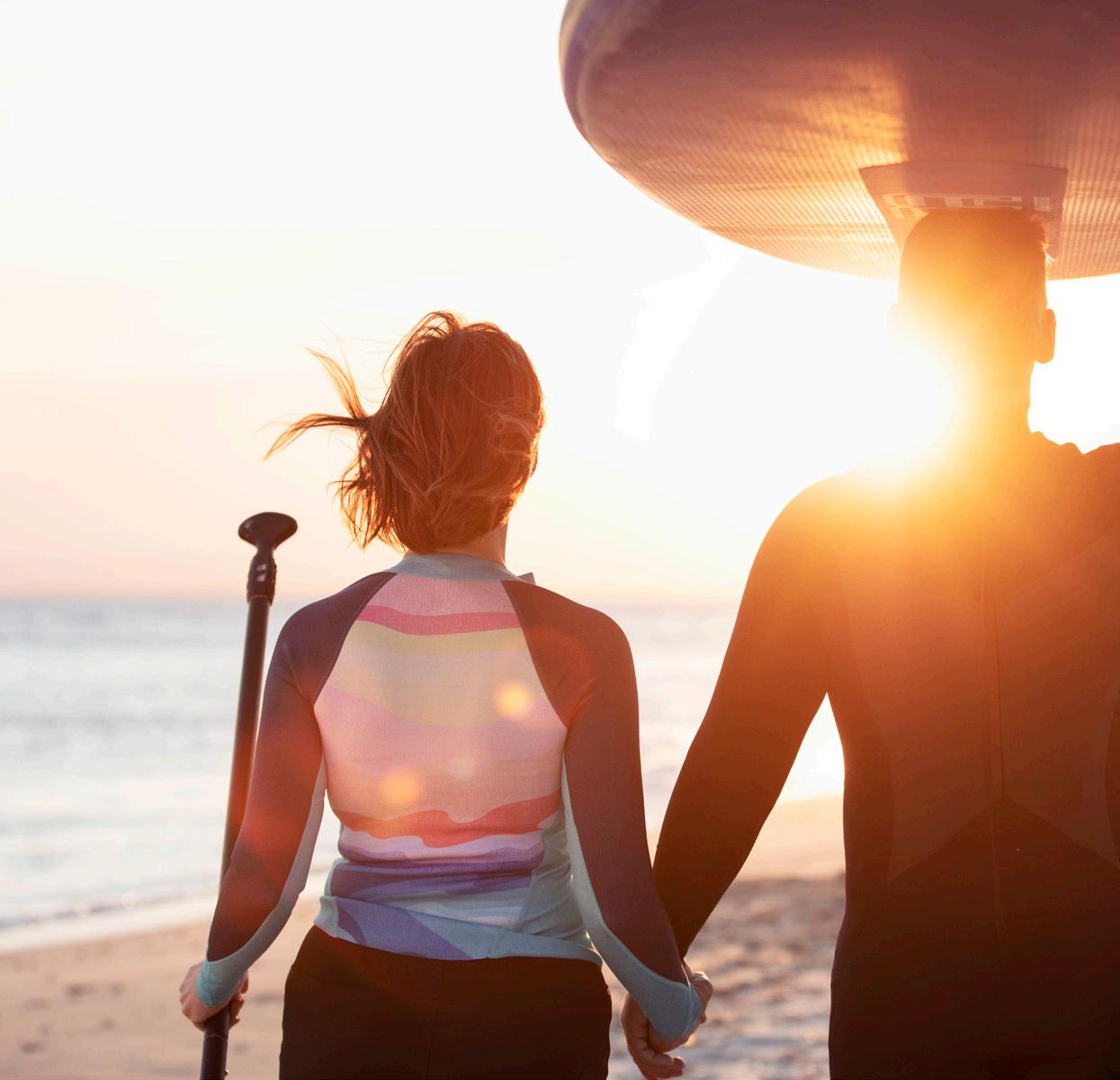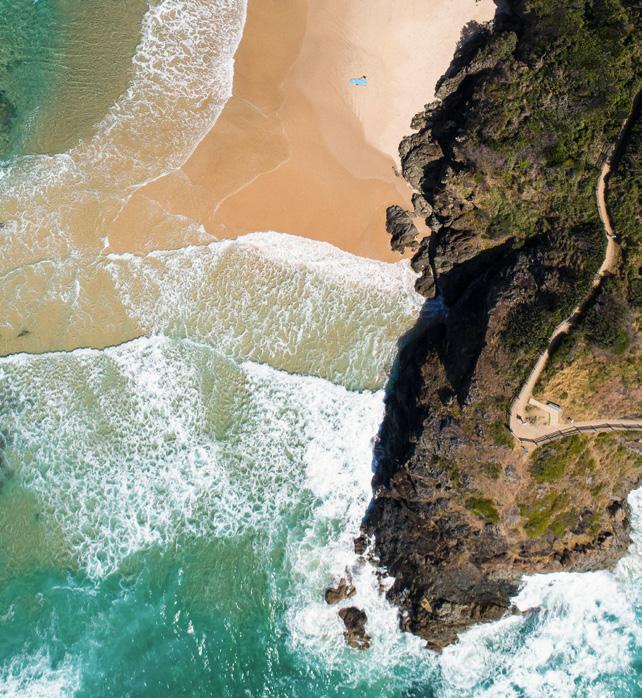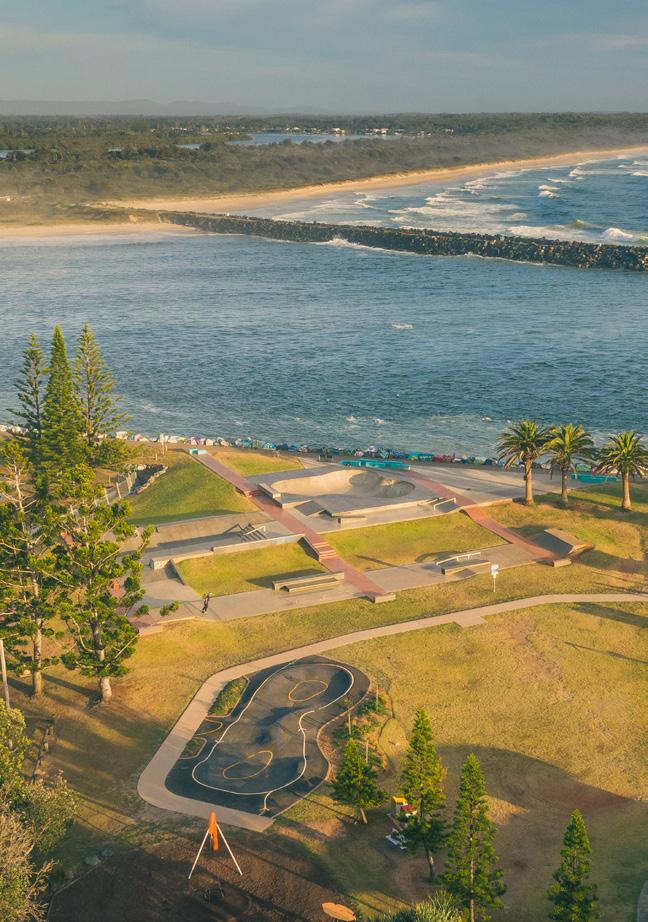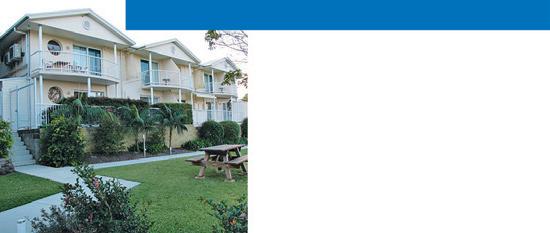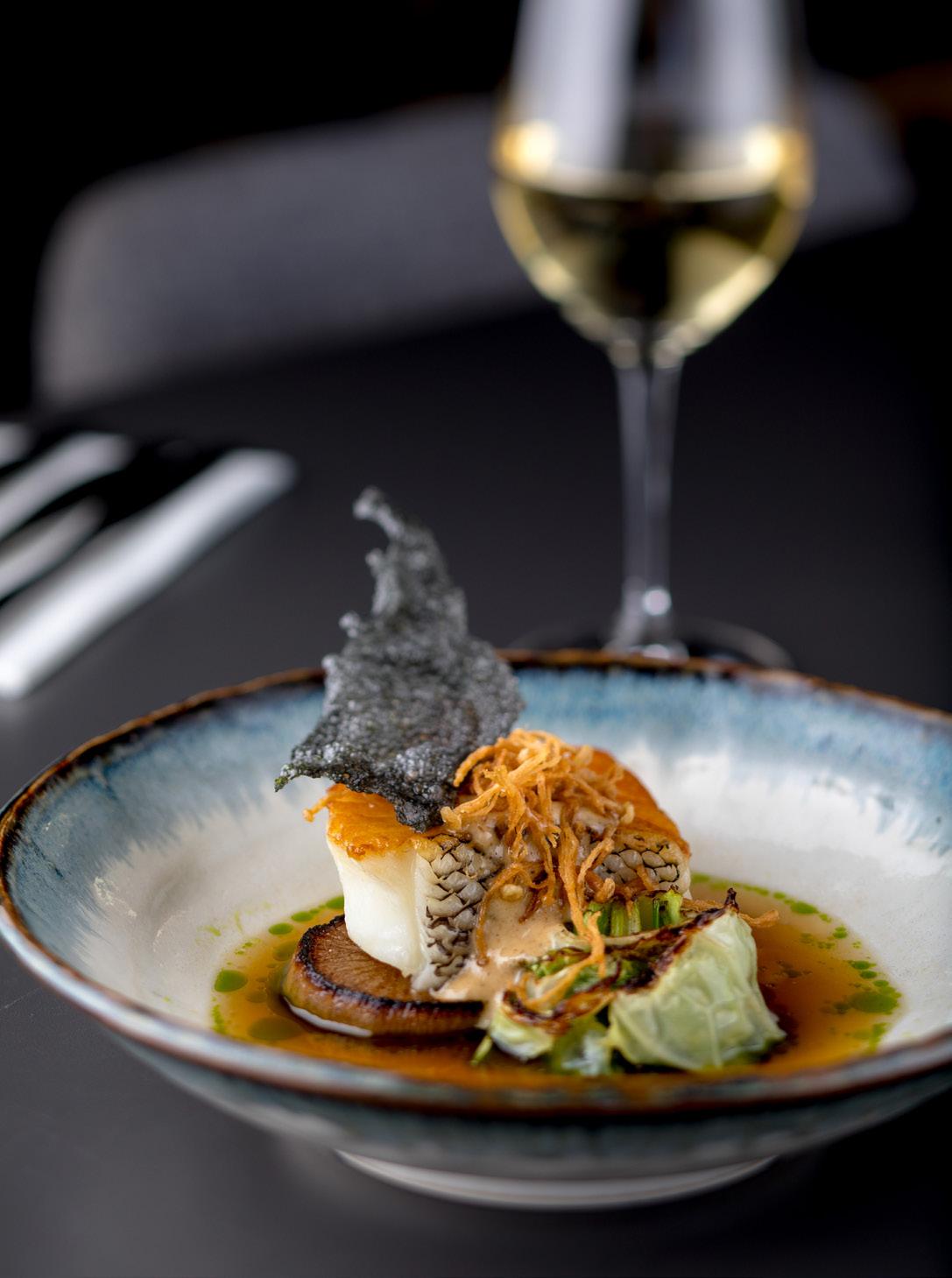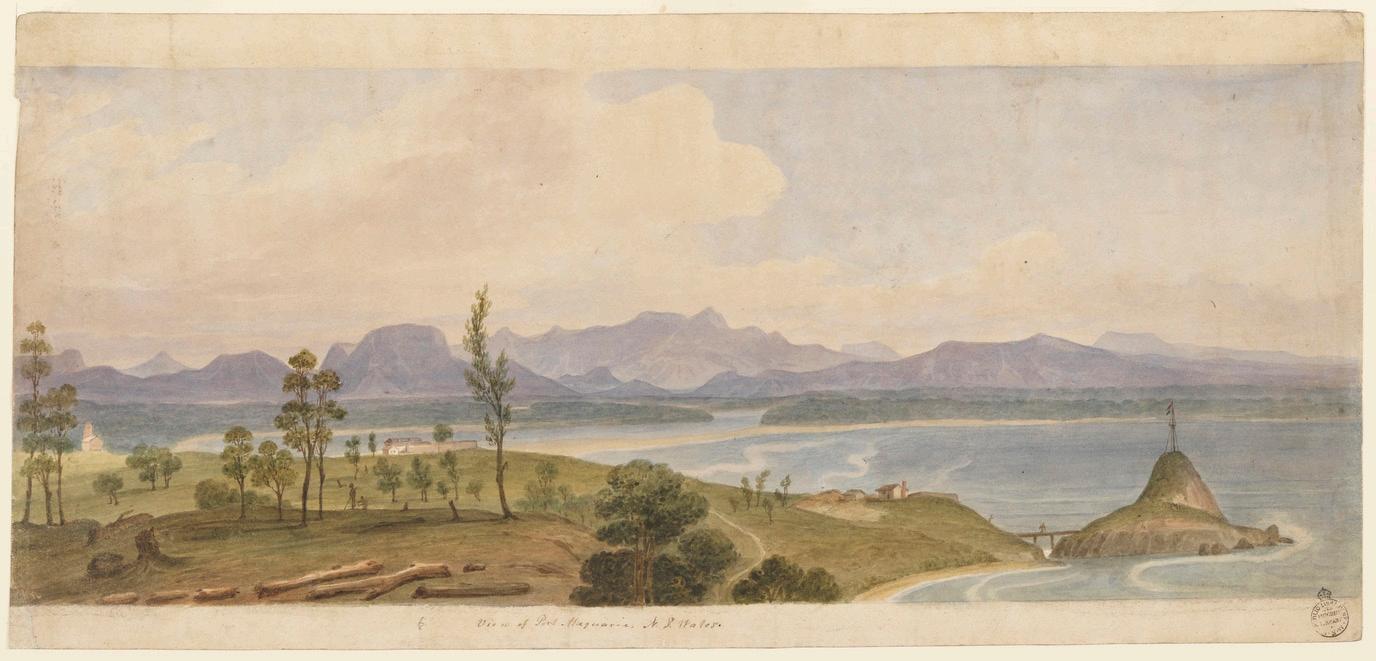
4 minute read
Koalas
Port Macquarie is the place to celebrate one of Australia’s most iconic animals - the koala. Here you can not only get up close and personal with our furry friends at Billabong Zoo (see page 11), you can also visit the world’s first koala hospital, or take the Hello Koalas Sculpture Trail to see over 60+ beautiful koala sculptures.
KOALAS MAKE GREAT MUMS
Advertisement
The gestation period is approximately 35 days and at birth, the unfurred, blind ‘pinkie’ crawls unaided from the birth canal, up through the fur and into the vertical pouch and attaches to one of the two teats. Once their eyes are opened, the joeys detach from the teat but remain in the pouch for around four to five months, growing and becoming fully furred. Anywhere from 250 grams weight onwards, the joey will become active, occasionally popping its head out and sniffing the air. Around this time the joey begins to stimulate its mother’s cloaca to produce a greenish substance called ‘pap’. This is passed down from the caecum, a specialised section of the intestinal tract where fermentation of the leaf occurs, for the joeys to eat. The ‘pap’ contains vital micro organisms (bacteria) that inoculate the joey’s gut system to enable them to digest eucalypt leaf. Without pap, a joey cannot eat eucalypt leaf and will not survive. From around six months of age, the joey will start emerging onto the mother's belly and by eight months the joey becomes a ‘back young’, staying on or near the mother. By 12 months, the koala is usually weaned. Female koalas are excellent mothers, and are highly protective of their young.
⟶ Koala climbing at The Koala Hospital
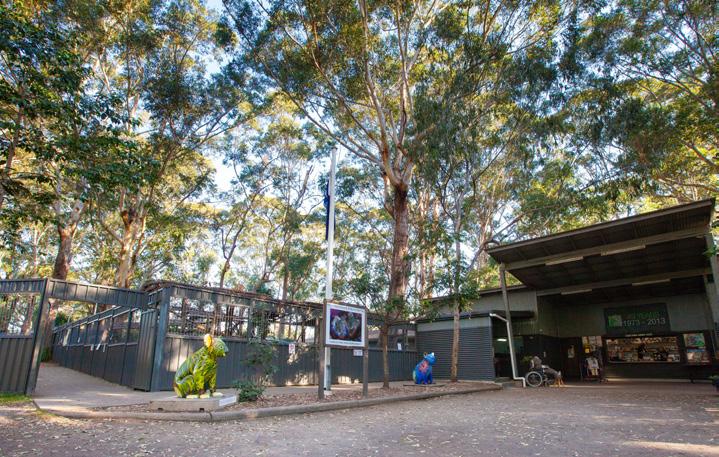
⟶ COVID-19 Notice
A number of changes have occured because of COVID-19 restrictions eg Opening is at 8.30am and feeding is at 8.30am and 3pm. The free tour has been cancelled for the time being and the museum is closed. All visitors need to book online or they will not be permitted onto the premises.
koalahospital.org.au
THE KOALA HOSPITAL
The Koala Hospital adjacent to Roto House is the world’s only hospital dedicated solely to the care and preservation of wild koalas. Founded by Jean and Max Starr in 1973, the hospital is entirely self-funded from donations, bequests, adoptions and their shop. It is managed by the charitable organisation, the Koala Conservation Australia, only has five paid staff, 170 volunteers and hosts one overseas volunteer for one month every month - a position that is in very high demand. Facilities include a treatment clinic, eight internal intensive care units, six outdoor intensive care units and 30 rehabilitation yards. There are a small number of non releasable koala patients who are permanent residents (nine in total) that are available for the public to see. The Koala Hospital is a research institution that collaborates and works with a number of universities and other institutions. Up until about five years ago, this unique Hospital would treat up to 200-250 sick and/or injured koalas each year, and successfully rehabilitate and return about 60-70% of their admissions to the wild. Koalas are admitted from all over NSW. Primary reasons for admission to care are being hit by cars, dog attacks and the bacterial infection Chlamydia which causes urogenital disease (commonly called wet bottom) and ocular (conjunctivitis). Other reasons include bushfires and issues that occur due to loss of habitat. In particular, last summer's devastating bushfires across the region had a huge impact on the local koala population and the hospital was inundated with injured koalas. How can we help the koala population? We need to ensure their genetic diversity is conserved by protecting their habitat, reducing vehicle strikes, dog attacks and disease - this is fundamental to their population health. How are the admitted Koalas named? Usually by the person who found them and the location in which they were found. Of the 900 species of eucalypt trees that grow in Australia, approximately only 60 of them across Australia are ‘food trees’ so koalas’ habitat is determined by the availability of these trees. Australian Music legend John Williamson is also passionate about saving koalas. John has been a patron of the Koala Conservation Australia ever since he met one of their founders, the late Jean Starr, in the early eighties. During a visit to the Koala Hospital, he witnessed an emergency rescue call come in. The entire experience was so impressive for John that it inspired him to write the song “Good Bye Blinky Bill”, which became enormously popular throughout Australia. He very generously donated the proceeds from his song to Koala Conservation Australia. John raised a considerable amount of money that enabled the Koala Hospital to build a new “John Williamson Wing” which houses their intensive care unit. The Koala Hospital has plans for a multimillion dollar redevelopment after receiving an overwhelming number of public donations as well as grant funding from the NSW Government.. Due to current COVID-19 restrictions, a number of changes have occured. All visitors need to book online prior to arrival or they will not be permitted onto the premises (koalahospital.org.au). The Koala Hospital is open daily from 8.30am and feeding times are at 8.30am and 3pm. The free tour has been cancelled for the time being and the museum is currently closed. Visitors to the Koala Hospital can view the clinic through a large window and see the koalas being treated. You can also observe the care and feeding of the koalas, however the koalas in recovery are behind screens. Did you know that 100,000 tourists visit the The Koala Hospital in Port Macquarie hospital each year? Admission is free and donations are welcome - you can even adopt a koala! Located at Lord St and Roto Place, Port Macquarie, 6584 1522, koalahospital.org.au
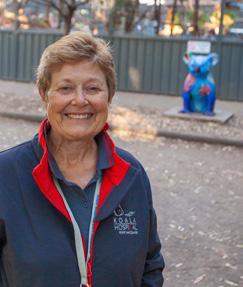
Sue Ashton at The Koala Hospital

